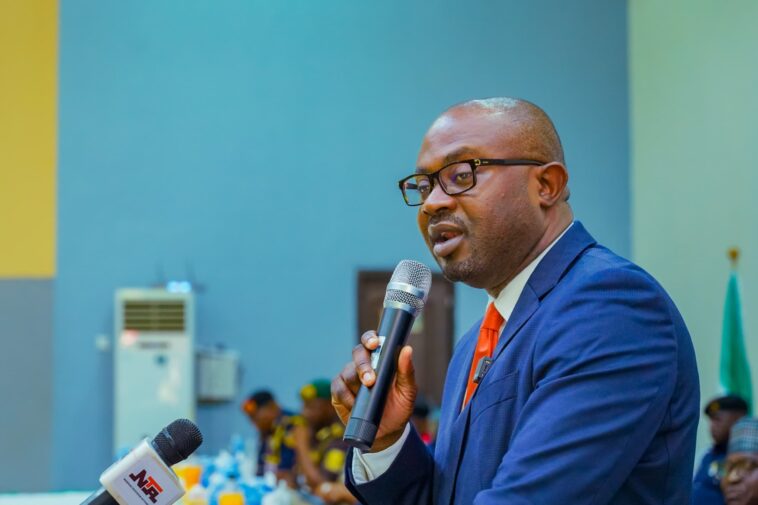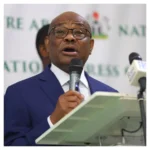Paramilitary Reforms Under Tinubu: The Federal Government has reiterated its commitment to continuous investment in Nigeria’s paramilitary institutions through innovative initiatives and structured capacity development programmes aimed at improving efficiency, creativity, and accountability in the service.- LeadNaija News reports.
The Minister of Interior, Dr. Olubunmi Tunji-Ojo, made this known on Tuesday via his verified X (formerly Twitter) handle while addressing senior officers at a Capacity Building Training on Performance Management System held in Abuja.
According to the Minister, Olubunmi Tunji-Ojo, the administration of President Bola Ahmed Tinubu (GCFR) remains steadfast in its mission to build competent, disciplined, and forward-thinking paramilitary agencies that reflect the Renewed Hope Agenda of the Federal Government.
“Through innovative initiatives and capacity development programmes, our government under the leadership of President Bola Ahmed Tinubu shall continue to invest in our paramilitary services,” Tunji-Ojo said.
He explained that the training session brought together senior officials from key agencies under the Ministry of Interior, including the Nigeria Immigration Service (NIS), Nigerian Correctional Service (NCoS), Nigeria Security and Civil Defence Corps (NSCDC), and the Federal Fire Service (FFS).
The forum, which gathered Comptrollers-General, Deputy Comptrollers-General, and Assistant Comptrollers-General, focused on strengthening institutional performance, promoting innovation, and recognizing excellence in service delivery.
Tunji-Ojo said the government is focused on creating an environment that rewards creativity and outstanding results rather than one that prioritizes mere seniority or bureaucracy. He emphasized that the era of complacency in the paramilitary system is over, as the Ministry is introducing performance-driven reforms to boost national security and public confidence.
“Together, we reviewed strategies to amplify efficiency, reward creative thinking, and transform challenges into stepping stones for greatness,” the Minister stated.
He added that true leadership requires a combination of integrity, performance, and the relentless pursuit of excellence. According to him, leadership within the paramilitary sector must be built on merit, discipline, and a culture of lifelong learning rather than rank alone.
“Our focus is on building strong, sustainable institutions that uphold public trust,” he said. “We assure Nigerians that we shall continue to prioritize discipline, creativity, and proven impact above all.”
The Minister of Interior noted that the ongoing capacity-building programme aligns with President Tinubu’s broader reform agenda for public institutions, which seeks to enhance governance through efficiency, innovation, and transparency.
He stressed that a professional, well-motivated, and properly trained paramilitary workforce remains essential to achieving internal security, effective border control, and disaster management.
“The Ministry is determined to reposition the paramilitary services as models of excellence and integrity,” Tunji-Ojo said. “We are building institutions that future generations will be proud of — institutions that respond swiftly to challenges, think strategically, and serve with empathy.”
He also acknowledged the dedication of senior officers across the paramilitary services, commending their commitment to the ongoing reform drive.
The Minister assured them of continued government support through policy upgrades, improved welfare, and the deployment of modern tools to aid service delivery.
Security analysts have welcomed Tunji-Ojo’s renewed call for innovation within Nigeria’s paramilitary system, describing it as a necessary step in bridging the gap between operational performance and modern-day security challenges. They emphasized that leadership training and performance management are key to fostering accountability across security agencies.
As the government intensifies its reform efforts, Tunji-Ojo reiterated that the Ministry of Interior will remain transparent in evaluating results, rewarding excellence, and holding officers accountable for measurable outcomes.
He concluded by reaffirming that the success of the paramilitary reforms under Tinubu depends on teamwork, dedication, and a shared sense of purpose among officers and stakeholders.





